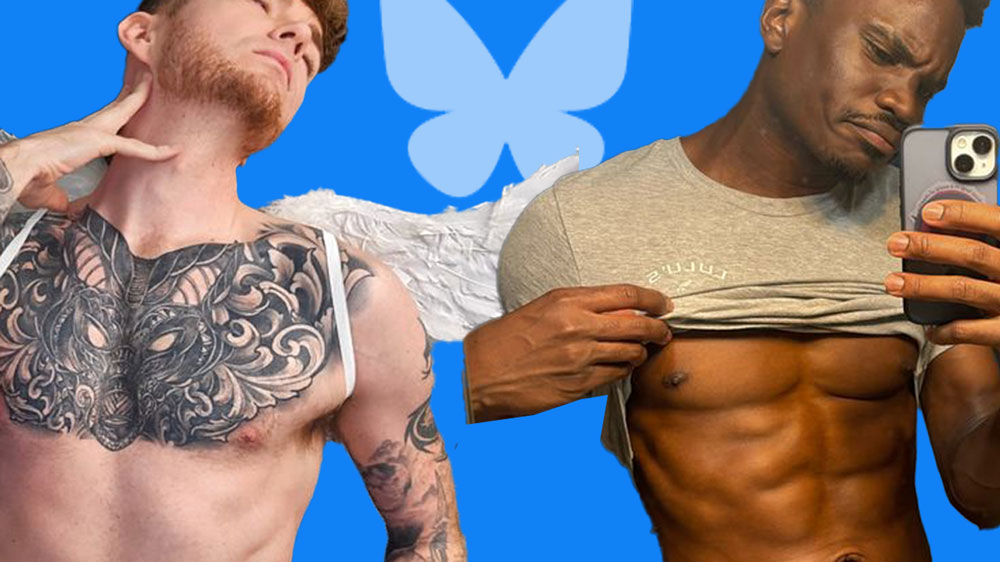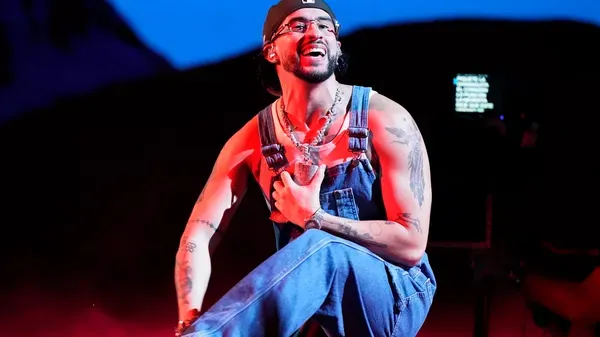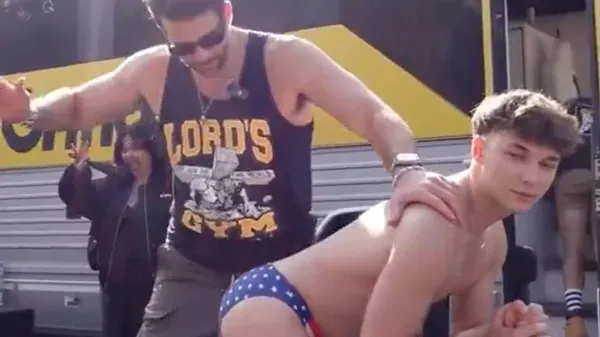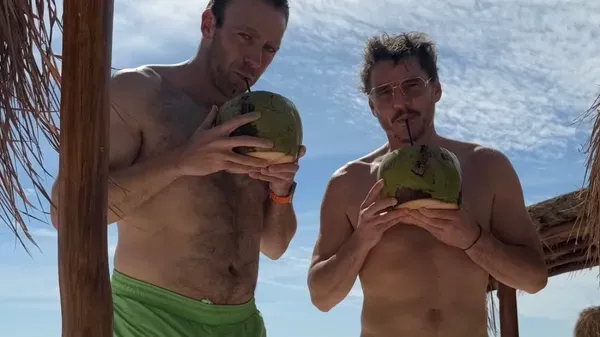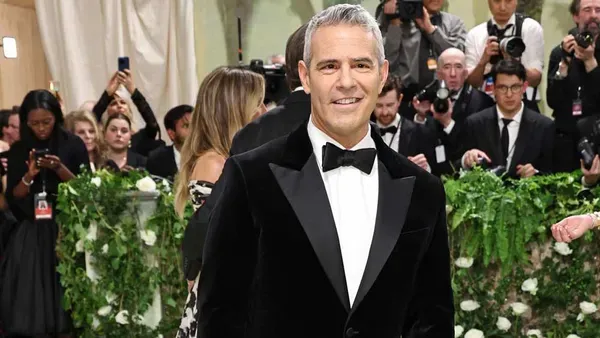Apr 23
How Sarah Ruhl and Taylor Mac Bring 'Orlando' to Joyful Genderfluid Life
Frank J. Avella READ TIME: 14 MIN.

Source: Rebecca Greenfield
EDGE: Sarah also manages to incorporate this cornucopia of themes. One is long accepted gender roles. As a woman, Orlando is startled by the limitations that are now placed on her. To think about that being written 100 years ago, and yet, it could be referring to today.
Sarah Ruhl: Yeah, just to give you one example, when Orlando becomes a woman, she says, "Oh, there's looking in the looking glass that will take an hour of my morning, there's doing my hair." So, I never really go to the gym, but when I turned 50, I was like, I should go to the gym... so it was my first time and I noticed after working out, all these women in the locker room were just looking in the mirror and doing their makeup and doing their hair. It was like an extra half hour on top of their workout. And I was like, what is this strange ritual? They're all looking in the mirror. What an additional time suck after exercising... And I thought of Orlando... I think about the gender warriors going out and saying gender does not have to be this confining and stupid. But yeah, we still have young girls on Instagram being obsessed with their appearance. I think we still have a lot to learn from Virginia Woolf.
EDGE: This adaptation also delved into that creative desire, that quest, with a joyfulness. Orlando's journey felt like a writer's journey.
Sarah Ruhl: Well, when you cast a writer as Orlando, you're going to feel it much more, which I love. In every century, after every heartbreak, Orlando tries to write this long poem. And I think because Taylor's such a brilliant writer, I feel it even more – the attempts and then the ability to finally write the poem at the end.
Taylor Mac: That's another reason why I'm deeply connected to this text. I just feel it all. Sometimes it takes centuries to write something. Every day there's a little death when you're a writer and thousands of deaths... I just feel this play deeply.
EDGE: We're living in insane times in the world, and, specifically, the U.S. For this play to come out right now is significant, with the attacks on the trans community, using them as scapegoats in ways that Russia has been doing with the LGBT community. Not to get too political...
Sarah Ruhl: I think it's really important to say. Between the Pope and the courts and young children – young bullies. It's a terrible, hard time. On the one hand, there's so much hope and a sense of liberation. And on the other this terrible, retrograde backlash. Our company is full of the most wonderful human beings. And I think the show really speaks to young people. Because I think this generation understands intuitively a lot more about gender. And also gets the pain of the backlash that's been happening now. Taylor, I don't know if you have thoughts about just the politics of doing the play in this moment.
Taylor Mac: The concept of gender is so expansive in the play. And it says something radical in that that we are all centuries old, not in the woo way of reincarnation, but in an actual tangible, this is what we've inherited and that we are all these many genders (way). And to center this as a human experience as opposed to an outlier experience – which is what was so nice to be in a cast of all queer people. That's the first time in my life that's ever happened, and I curate most of my experiences. (laughs) So, it's been remarkable to say that this is actually all of us, that there's nothing straight in nature. We are all curved... So the concept that we aren't is about control. I think it's a beautiful play and that Virginia Woolf was having these ideas long before now is also liberating because there's this annoying conversation that this is something that's just new and strange and radical.
One of the things we do, as a company, we celebrate that Virginia Woolf and Vita and Orlando as a metaphor for us all, are actually progenitors. They're part of our history that has been erased or defined as other or different or straightened out a little bit. This is our history. This is our mythology. It's very moving and healing to be in the production. And we've had a lot of young people at the show, and they just freak out over it. They love it.

Source: Joan Marcus
EDGE: So, upcoming, Taylor? I don't know when you have time to sleep.
Taylor Mac: It's a busy year. If you talked to me a year ago, I would have been like, I don't have any bookings... I spent all my retirement money. But now it's a busy year from going from "Bark" to this. And then I'm off to Chicago to do "Midnight in the Garden."
Sarah Ruhl: It's the trifecta!
Taylor Mac: I know. It's kind of my fantasy come to life. I just wish it was a little spread out over the year instead of all in the spring.
EDGE: "Midnight in the Garden." Is it going to be queerer than the Clint Eastwood film? I wonder... ?
Taylor Mac: (laughs) Hmmm. I wonder. I made the choice not to make a straight protagonist out of the gay narrator. I made that choice. I wonder why. Yes, is the answer.
EDGE: And Sarah, what is up next for you?
Sarah Ruhl: I, too, am going to work on a musical. I've been working on a show based on "Face in the Crowd" for six years or something with Elvis Costello composing and we're going to do it in London in the fall.
Taylor Mac: You get to work with Elvis Costello! That is so cool.
Sarah Ruhl: I love him so much. I love your trifecta. I feel like my trifecta is more genre related. It's something with music, something not with music and a poem.
EDGE: You're both working on films/novels translated into stage musicals. And this has been a trend that has been successful and not so successful. How do you take something that is specific to one medium and translate it into something that is specific to a different medium?
Sarah Ruhl: I think of us as alchemists, turning one different kind of metal into another kind of metal... And if you get the alchemy right, you totally can make it live in another form. But there has to be something about the original material that has room for that transformation. I used to think it was dumb turning films into musicals for precisely the reason you gave, that it lives beautifully in one medium. But the more I started thinking, well, we're in a kind of weird secular society, religious mythologies are gone or are receding. So are our mythologies. If the Greeks took Zeus and made a play about him, I feel like, in a way, that's what we're doing with movies. It's a kind of mythology that's available, and we're putting it on stage to make people feel something in a different way about it.
Taylor Mac: I agree with that. I think of "Midnight" as a book first... I'm not a fan of the movie. The book sings to me, so it just makes sense. If you're doing the project, because you're trying to further the brand – that's maybe the producer's goal – but that's never my goal. I would never say yes to something, which is about achieving a win in capitalism. I say yes because my heart wants to sing with those characters.
I see it as an exploration and an offering... I love Chablis and I wanted to know what it would be like to hear our consideration of Chablis singing. That's really what it comes down to for me. Because the real Chablis didn't sing... I'm writing a consideration of the offering that she gave the world and then I'm saying what happens when I offer up. And that offering is that she gets to hit high notes. (laughs)
Sarah Ruhl: I love that the idea of the offering and consideration of the character you wanted to see. Funnily enough, "Face in the Crowd," Budd Schulberg wrote it as a short story first called "Your Arkansas Traveler." When I read that I was like, "Oh, I understand how it sings now." It's funny, there's something about the voicings that for me is much easier with the written word then when it's on film.
Taylor Mac: No one would say Shakespeare was wrong for taking the mythology of Romeo and Juliet. That story's been told a million times. There's only so many stories in the world. It's really just you're offering. It's just the offering. That's all.
The Signature Theatre production of Orlando is currently playing at The Pershing Square Signature Center (480 W 42nd St) in The Irene Diamond Stage through May 12, 2024. For tickets, visit signaturetheatre.org/show/orlando.
This interview has been edited for content, clarity, and length.
Frank J. Avella is a proud EDGE and Awards Daily contributor. He serves as the GALECA Industry Liaison and is a Member of the New York Film Critics Online. His award-winning short film, FIG JAM, has shown in Festivals worldwide (figjamfilm.com). Frank's screenplays have won numerous awards in 17 countries. Recently produced plays include LURED & VATICAL FALLS, both O'Neill semifinalists. He is currently working on a highly personal project, FROCI, about the queer Italian/Italian-American experience. He is a proud member of the Dramatists Guild. https://filmfreeway.com/FrankAvella https://muckrack.com/fjaklute
